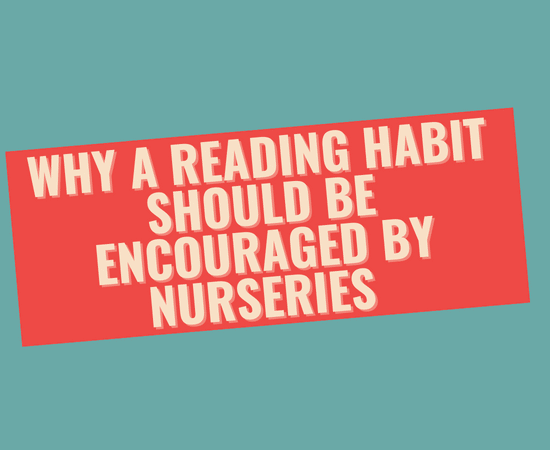Why A Reading Habit Should Be Encouraged by Nurseries
Many children start school without being school ready. School readiness has a big impact on the academic performance of the child. In fact, research shows that most children who start school without being school-ready fall behind their peers and most of them never really catch up throughout their school years. On the other hand, children who are prepared to start school achieve better grades, are more confident and have a better chance of getting into big universities.
The qualitative research on teaching professionals conducted by the National Literacy Trust found that only 50% of the students who started school in 2021 are school ready. This means the other 50% of the class are not prepared for the challenges that they meet in school, outside the comfort of their home.
The reality is that many children are not ready for school when they start. In fact, many parents assume that their children will catch up as they get older, but this is rarely the case. Some of these reasons are due to the parents themselves, but others are due to the environment in which the child lives. Lack of time with children limits reading and storytelling; excessive screen time; and inadequate parental education or language might impair children’s speech development.
Nurseries play an important role in the child’s early years of development. They are the first institution trusted by parents to form the foundation of the child’s literacy. However, it’s also undeniable that preschools and nurseries can also do so much. Parents should also play their part in ensuring the child gets all he needs to equip himself for the big school.
Basic literacy should be taught at home. However, some parents are too busy with work and other commitments that they have little to no time to teach their kids. The good thing is that there is an easier way to teach literacy to children that will not cost you so much time and more importantly, the kids will enjoy.
Early childhood educators suggest bedtime reading at least 10 minutes a day to increase the intelligence levels of the child. Reading opens so many opportunities for learning, not to mention the emotional benefits that bedtime reading brings to the parent and to the child.
Children’s imaginations are stimulated and their worldviews are expanded when books are read aloud to them. It aids in their language and listening development as well as their understanding of written language.
Reading forms the foundation for learning. In fact, the child’s vocabulary is widened when he/she reads frequently. Vocabulary is also the foundation for good reading comprehension. After all, the child only understands words that he is familiar with. Nurseries should encourage children to read for pleasure and build reading habits.
Although reading is a promising opportunity for children to learn more, it though comes with its own challenges. The big question is, how do you get the child to read?
The first step to building a love for reading is choosing the right book for your child. The book should be appropriate for their age, reading level, and most importantly a book that they are interested in. Some children have trouble reading because they are not interested in the reading material and they will be more engaged by personalised stories because of their personal relevance (Bracken, 1982).
A Super Personalised Book gives parents the opportunity to make their child the HERO of the story. Just imagine the look on the child’s face when they open a book and they see themselves in it! In a Super Personalised Book, you can customise the physical appearance of the character, feature the child in the story, add a sweet dedication, and even a memorable photo!
A study by the National Literacy Trust on the effectiveness of personalised books in aiding children to read found that a personalised book indeed increases reading comprehension in children by 40%! The study even suggests that the reading experience when reading a personalised book is enhanced because of its direct personal relevance to the reader. Interest in reading has been proven to improve reading comprehension (Schiefele, 1999 as cited by Clark and Phythian-Sence, 2008)
Nurseries, as the child’s first educational institution, should help parents understand the importance of reading in young children. The child’s early years are golden, this is the stage where you build life-long habits. Getting the child school ready is beneficial for educators and parents. School readiness affects the productivity of the whole classroom. So, if you want a more productive learning environment for the child and for the whole class, encourage reading at home to raise more school-ready children ready for the big school and set for life!



